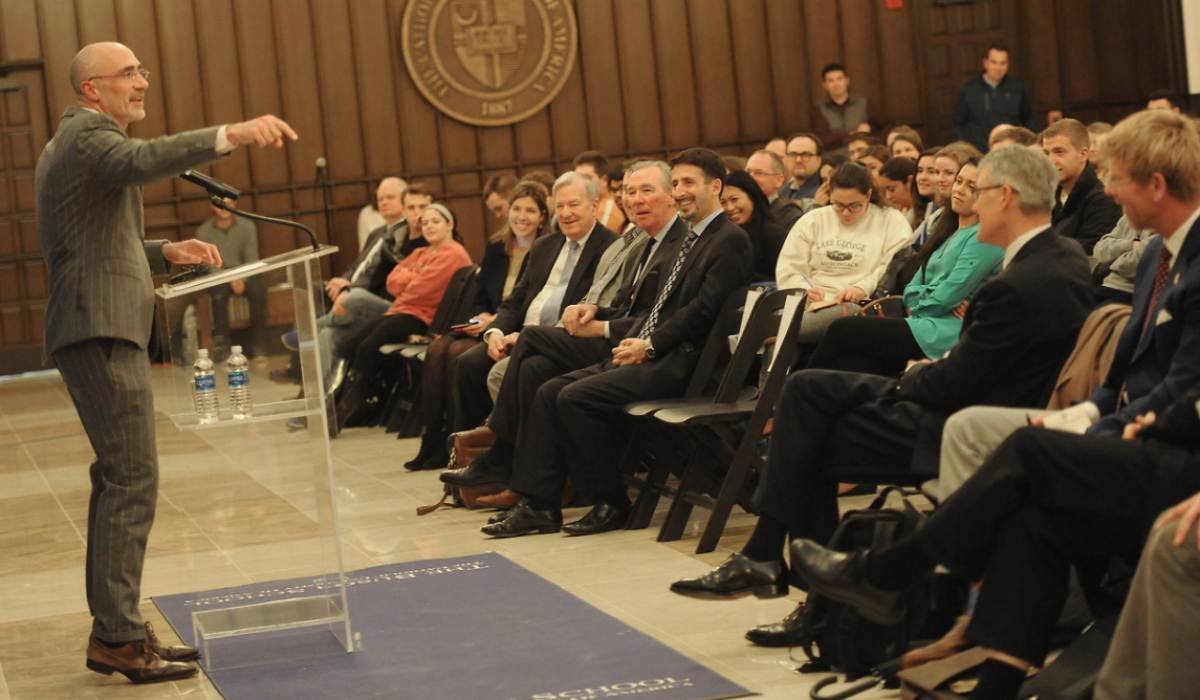

During a talk this week at The Catholic University of America, Arthur Brooks, president of the American Enterprise Institute, posed a question that prompted him when he was a young man to change his occupation from musician to economist. “Does your work serve others and glorify God?”
As a French horn player with the Barcelona Symphony Orchestra, Brooks said that he admired Johann Sebastian Bach who maintained that "music's only purpose should be the glory of God ... " Realizing that he couldn’t say that about his own work, Brooks said he decided to become an economist.
In his Jan. 17 talk, titled “Bringing America Together: Restoring Cultural Optimism and Economic Opportunity,” Brooks encouraged the audience of about 300 students, staff, and faculty members from The Busch School of Business and Economics to use their Catholic faith and passion for business for the betterment of society and the economy.
Noting the divided state of the country in the wake of the recent presidential campaign, Brooks encouraged the students to be optimistic and to help create jobs when they graduate and join the workforce.
“You’re going to go into business, and you're going to get a job, and you're going to create jobs. And, the purpose of those jobs is to make people [feel] necessary,” said Brooks whose talk was part of the The Busch School's CEO Lecture Series.
He urged the students to take what they’re learning at The Busch School — where the curriculum is based on the Catholic social principles of human dignity, solidarity, subsidiarity, and the common good — and apply it as they respond to the needs of the poor.
Brooks also encouraged the students to use kindness rather than contempt in their careers. “The problem we face today is contempt,” he noted. “According to psychologists, contempt is the prediction of the worthlessness of another human being. It is worse than anger … contempt has no reconciliation, it has no resolution.”
Brooks said that contempt has become so commonplace in public discourse, often it is seen as a normal way to engage in conversation.
Brooks quoted the Dalai Lama, saying “ ‘I defeat my enemies when I make them my friends.’ ” Brooks added, “If you want to win the war on contempt, answer contempt with kindness. You can change a culture by looking for contempt and substituting kindness for it and that my friends is the Catholic way.”
After his presentation, Brooks responded to questions and talked to students, faculty, and staff.